Award-Winning Science
Tutors
Who needs tutoring?
FEATURED BY
TUTORS FROM
- YaleUniversity
- PrincetonUniversity
- StanfordUniversity
- CornellUniversity
Award-Winning Science Tutors
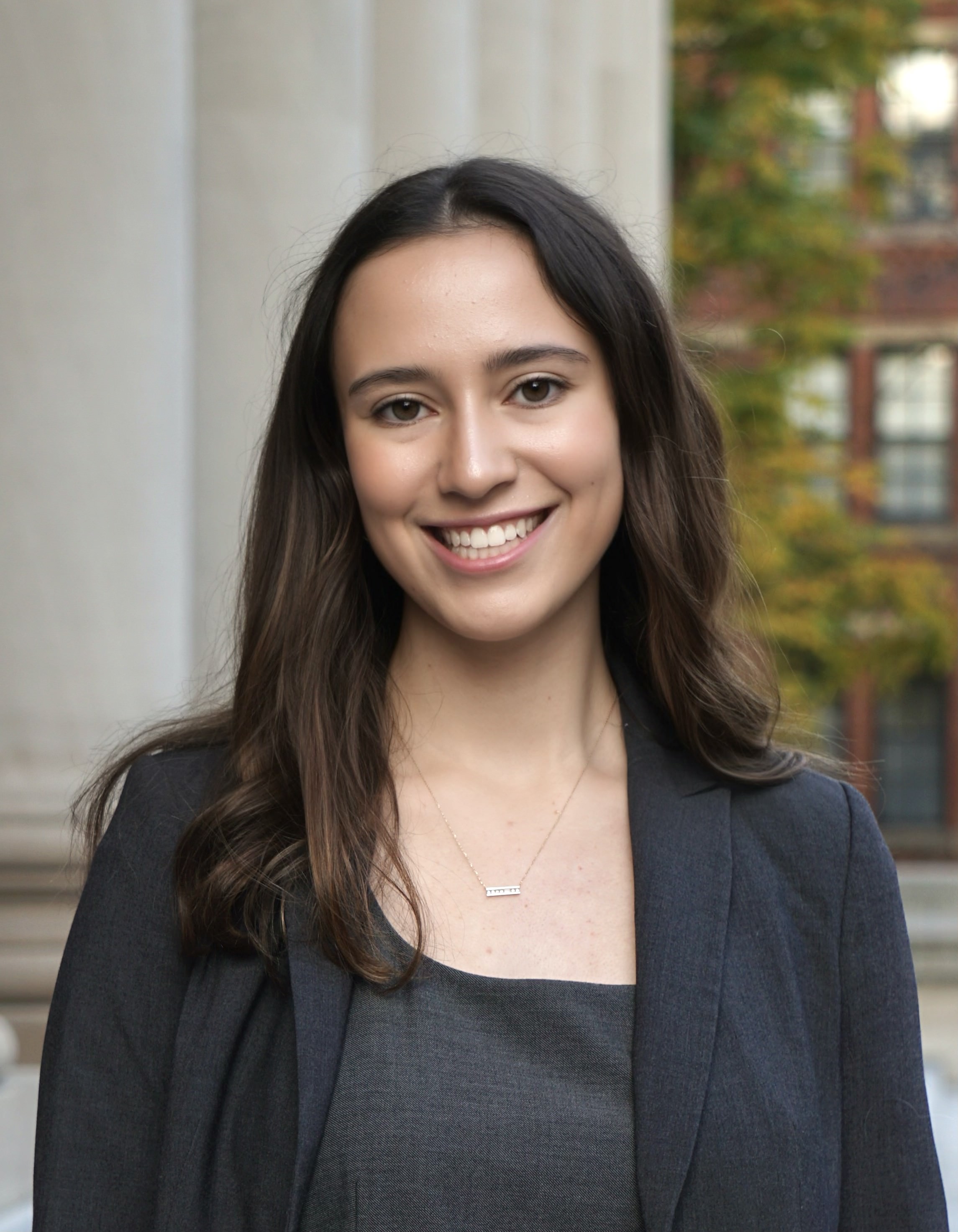
Certified Tutor
2+ years
Hi! I'm a student currently studying Government at Harvard, and I'm really looking forward to getting to work with you. I have experience tutoring high school students in a number of subjects, including math (Algebra 2 and Precalculus), English, History, and Spanish. I also have helped students writ...
Harvard University
Bachelor
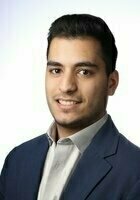
Certified Tutor
2+ years
I am attending the University of Pennsylvania where I am majoring in Bioengineering on the premed track, with my goal after graduation to become an orthopedic surgeon. My passion for tutoring stems from a genuine love for helping people discover their strengths and succeed in their learning journey,...
University of Pennsylvania
Bachelor
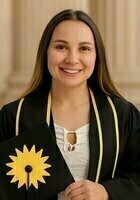
Certified Tutor
2+ years
Hello! My name is Kaitlin, and I am a recent graduate from Yale University. As a STEM major on the premed path, I specialize in STEM subjects, but also excelled in high school english and reading courses. I am an FGLI student from a small town in PA and have made it this far through A LOT of studyin...
Yale University
BS
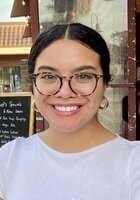
Certified Tutor
2+ years
Get to know me professionally: Why are you passionate about helping students? I understand that navigating different forms of coursework can be difficult, especially as you continue to progress in your academic career. I believe that careful consideration should be given to how you study for a par...
Rice University
MS
University of North Texas Health Science Center
MS
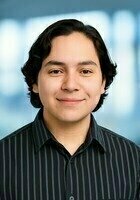
Certified Tutor
2+ years
I'm a student at Yale University majoring in both Economics and Global Affairs. Over the past 4 years, I am lucky to have worked with students of all ages and helped them reach their full potential. I offer tutoring services in all subjects, and I'm particularly interested in English, Economics, Go...
Yale University
AB
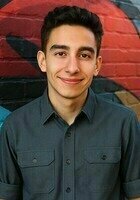
Certified Tutor
2+ years
I am a current student of the Massachusetts Institute of Technology, where I am studying biology and Spanish primarily. I've tutored for many years under school programs in a variety of subjects, but I am most passionate about biology, math, and history. I like to use my personal experience in thes...
Massachusetts Institute of Technology
Bachelor
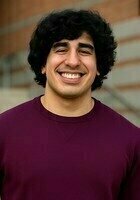
Certified Tutor
2+ years
Hi! I'm an incoming second year at UCLA, working on attaining a B.S. in Physiology and a minor in Science Education. I graduated high school with the IB Diploma. I've tutored math and biology pro bono locally in the Northern Virginia area for almost two years, as I love giving back to my community a...
University of California Los Angeles
BS
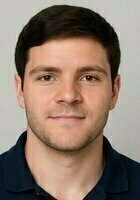
Certified Tutor
2+ years
Robert
I graduated from The University of Virginia in 2019. I received my Bachelor of Science in Commerce with a concentration in finance. I also received my masters in city planning from the University of Pennsylvania in 2023. I have spent many years tutoring the GRE, with a strength in GRE Quant. I also ...
University of Pennsylvania
Master's/Graduate
University of Virginia-Main Campus
Bachelor
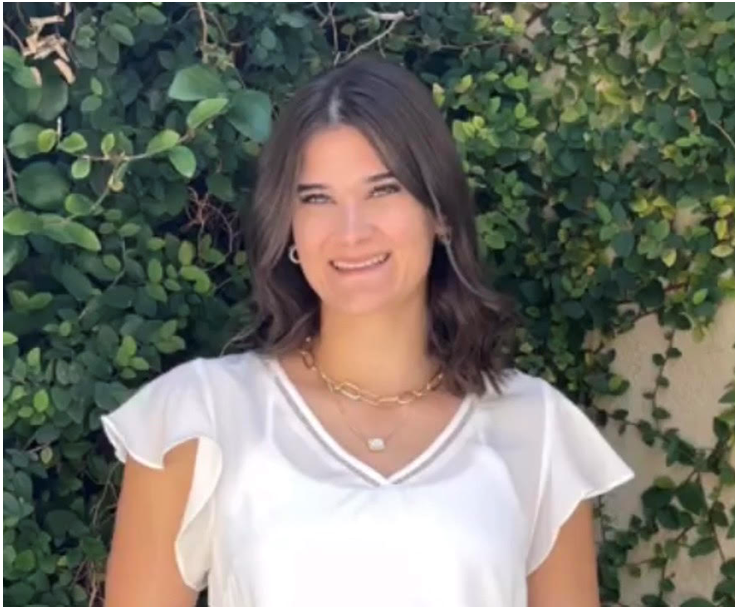
Certified Tutor
2+ years
Currently I am a graduate student in Stanford University's Master's Program for Human Genetics and Genetic Counseling. Prior to my enrollment at Stanford, I worked as a Genetic Counseling Assistant for Igenomix, a genetic testing laboratory. I graduated from Cornell University in December of 2021 wi...
Cornell University
BS
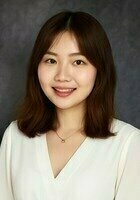
Certified Tutor
2+ years
Ting
Both Master(UPenn) & 2 Bachelors(UCI) degree in Education An engaging teacher, turning language learning into a joyous adventure with a sprinkle of patience, a dash of encouragement, and a whole lot of fun!
University of Pennsylvania
Master's/Graduate
Meet Our Expert Tutors
Connect with highly-rated educators ready to help you succeed.
Olivia
AP Calculus AB Tutor • +33 Subjects
I received my BA in mathematics and economics from Vanderbilt University. Upon graduating, I was employed as a high school math teacher for four years in the states of Tennessee and Florida, while also tutoring in STEM and test prep for a Nashville-based company. I love getting to see students grow in confidence in mathematics, and create relevant scenarios that get them excited about tackling challenges. I believe education is the most important tool that a person can have, and I am currently pursuing my PhD in Economics at UNC Chapel Hill. When not studying furiously myself, I enjoy spending time outside, playing sports, and reading good books.
Joey
AP Statistics Tutor • +66 Subjects
Howdy! My name's Joey, I love all things music and tech as well as hitting the gym. I hold degrees in mechanical and aerosapce engineering as well as scientific computing from the University of Glasgow and University of Pennsylvania. I've been an instructor and TA at both institutions and I greatly enjoy sharing knowledge!
Maham
Pre-Algebra Tutor • +71 Subjects
I am currently an undergraduate student at Rice University pursuing a bachelor of science in biochemistry and cell biology on the pre-med track. One of my most memorable experiences in the medical field has been working as a research intern at Texas Children's Hospital and collaborating with genetic specialists to publish a research paper about a rare genetic disease. Medicine is truly one of my greatest passions, and biology has been one of my favorite subjects to tutor through the peer mentorship program at my high school. Through this program, I have also extensively tutored math (from middle school math all the way through IB Mathematics) and find myself drawn by the methodical nature of the subject. Many times, I find that students simply label math as "difficult" because the concepts are brand new and numbers seem like a foreign language. Relating math concepts to simpler everyday ones is one of the many strategies I use when tutoring math, and I have found a lot of success through it. Throughout high school, I have been very active in my school community as the Editor-in-Chief of the school newspaper, president of the Speech and Debate Team, and president and founder of the Random Acts of Kindness Club. Through these roles, I have mentored younger students in areas such as writing, research, and public speaking. Additionally, I am fluent in 4 languages (English, Urdu, Arabic, and Spanish), although my favorite one to teach is Spanish. Attending an international school has emphasized to me the importance of diversity, inclusion, and tolerance, and I believe that learning a new language is one of the best ways to reinforce these ideals. In my spare time, you can find me engrossed in arts and crafts, running my Etsy store, or volunteering my local art museum's kids' crafts classes. I also love listening to music, creating music on my violin, and singing various genres.
Abdelhalim
Algebra Tutor • +24 Subjects
I graduated from Northwestern University with a Bachelor's of Arts in Neuroscience and have a Post-baccalaureate Certificate in Biomedical Sciences and Health Equity. As a tutor I focus on problem solving and analytical skills. I am able to break down problems and difficult concepts in a way that every student can understand. I have numerous years of experience helping students excel in coursework, prepare for standardized tests, and compose comprehensive academic applications. I truly believe every student is capable of high levels of academic achievement and given the right framework students will propel themselves to new heights. I am proficient in many subjects but have a true passion for math, science and language arts.
Sofia
Biostatistics Tutor • +9 Subjects
When I was young, I used to hate swimming at the beach. The idea of sharks moving around under the waves where I could not see them made me scared to go into the water. As I grew up, however, and began to learn about the different sharks that lived off the shores of my home in Massachusetts, USA, I became less and less scared and more and more fascinated with how and why sharks move around in this underwater world. I began to ask questions like, what do sharks do under the water when we cannot see them? and, where do sharks like to go and why? As a marine scientist now I try to answer these questions. Because sharks live and breathe under the water and can swim long distances and go deep into the ocean, further and deeper than I could follow by myself, to study how these animals move and behave underwater I have to use lots of different types of technology. Sometimes I use underwater robots that can follow the sharks down deeper than humans can go, and that can carry things like cameras so I can directly see what the sharks are doing. In my work now, I use special tags that send out signals every few seconds with a unique name that identifies individual sharks. When the shark swims close enough to receivers placed out in the ocean, these receivers are able to hear and record the tag name, telling where and when individual sharks are present in different areas of the ocean. One thing I love about being a shark scientist is that I can follow sharks all over the world. First, I followed the movement of sharks all the way over in the Atlantic Ocean off the east coast of the USA. Then I moved to Tasmania, Australia, and I followed young sharks as they move around off the coast of New South Wales. Now I am back home in Massachusetts and working on publishing my research.
Carina
AP Statistics Tutor • +56 Subjects
I have a bachelor's degree in Business Economics from the Wharton School at the University of Pennsylvania (GPA 4.0) and previously graduated from The Lawrenceville School cum laude. I am currently pursuing a Master's Degree at the London School of Economics. I began tutoring in 2019 and have worked with students of all ages and backgrounds. I'm open to tutoring a very broad range of subjects, with the most experience in math, econ, and test prep. Please reach out if you're interested in working with me or if you have any questions!
Alexander
Middle School Math Tutor • +17 Subjects
I am a researcher who graduated with a Ph.D. in materials science and engineering from Penn State University and a B.S. in applied physics from Columbia University. I have found great passion in teaching and mentoring students in physics and materials science, whether through informal educational training activities at the Discovery Space, assisting in laboratory classrooms for undergraduates, or helping students with difficult problem sets for thermodynamics or quantum mechanics. I've seen the best success when students can interact with a complicated concept in multiple ways and pull on their own experiences as metaphors to the system in question - after all, this is part of how science is actually done! Currently in my spare time, I enjoy reading, strategy games, and learning Mandarin.
Sara
Pre-Algebra Tutor • +36 Subjects
I'm a rising sophomore at Columbia University, majoring in Mechanical Engineering. My journey as a tutor began in 10th grade when I ran volunteer tutoring labs in math, physics, and chemistry. I had classmates struggling with stoichiometry, peers needing an algebra refresher, or a group of panicked kids with a trigonometry test the next morning. With a wide range of needs and urgencies, I learned how to break down complex ideas into approachable steps, fill in gaps in their understanding, and tailor each session to meet individual needs. I've guided high schoolers through personalized ACT and SAT prep, sharing my tips/tricks and improving their current test-taking strategies. I completely understand that tough subjects can be overwhelming when one is confused; the learning journey typically leaves you confuzzled/frustrated. However, I'm here to clear the fog. I focus not just on getting the right answers, but on building real understanding. I'm prone to using odd analogies, clear explanations, and customized study strategies that meet students where they are. My goal is to make students feel confident in their knowledge and problem-solving strategy.
Chase
Middle School Math Tutor • +16 Subjects
As a student pursuing a Bachelor's in Chemistry from Duke University, I am passionate about sharing my knowledge and enthusiasm for the sciences and mathematics. Though I have experience in tutoring, I view every session as an opportunity to foster a supportive learning environment where students feel comfortable to ask questions and explore concepts deeply. My specialties include ACT and SAT preparation, as well as subjects like Algebra, Calculus, and Chemistry. I believe in a hands-on approach that encourages critical thinking and problem-solving skills. I am dedicated to helping students not only achieve their academic goals but also develop a genuine interest in learning.
Pauline
Pre-Algebra Tutor • +30 Subjects
I am a PhD student at UT Southwestern Medical Center. I have received my Master's in Biotechnology at Johns Hopkins University and my Bachelor's in Biochemistry at Southern Methodist University. I've tutored middle school, high school, and college students in math (Algebra I & II, Geometry, Calculus I-II) and science (Biology, Chemistry, Organic Chemistry). I have the most experience with and enjoy teaching Algebra I & II and Chemistry though. I grew up as a athlete myself (figure skater) and so am aware of the strenuous schedule student athletes have and work to be as flexible as I can with my own schedule so that I can accommodate these students.
Top Science Subjects
Frequently Asked Questions
Varsity Tutors offers personalized 1-on-1 instruction across a wide range of science disciplines, including Biology, Chemistry, Physics, Environmental Science, Anatomy, Physiology, and more. Whether your student is tackling general science in middle school, preparing for AP exams, or diving into specialized college-level coursework, our expert tutors can provide targeted support tailored to their specific curriculum and learning goals.
Science tutoring addresses the specific gaps in understanding that hold students back. Our expert tutors break down complex concepts into digestible explanations, work through challenging problems step-by-step, and help students build confidence in labs and on exams. With personalized instruction focused on your student's weak areas, they develop deeper mastery of the material and stronger problem-solving skills—both essential for grade improvement.
We work with students at all levels, from those just beginning to explore science in middle school through advanced college coursework and professional exam preparation. Whether your student needs foundational support in core concepts, help advancing to honors or AP-level science, or specialized tutoring for a challenging major, our expert tutors can meet them where they are and help them progress.
Absolutely. Our expert tutors help students prepare for standardized science exams including AP Biology, AP Chemistry, AP Physics, and others, as well as state assessments and college placement exams. They develop targeted study plans, review key concepts, work through practice problems, and help students build test-taking strategies so they can approach exam day with confidence.
In a classroom, teachers must move at a pace that works for the majority of students. With personalized tutoring, our expert tutors focus entirely on your student's learning style, pace, and specific challenges. They can spend as much time as needed on difficult concepts, skip material your student has already mastered, and adapt explanations until the material clicks—resulting in deeper understanding and faster progress.
Yes. Beyond conceptual understanding, our expert tutors can help students with lab report writing, data analysis, experimental design, and hands-on problem-solving skills. Whether your student needs support understanding what happened in a lab or developing stronger scientific communication skills, personalized tutoring covers the practical side of science learning.
Many students show noticeable improvement within the first few weeks of consistent tutoring as key concepts begin to click. However, the timeline depends on factors like the student's starting point, frequency of tutoring sessions, and how actively they engage with the material between sessions. Our expert tutors work with you to set realistic goals and track progress toward them.
Connect with Science Tutors
Get matched with expert tutors in your subject


